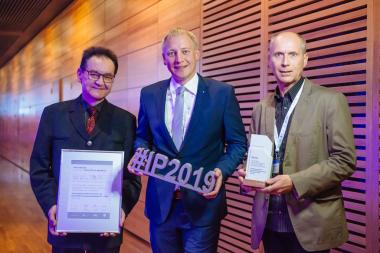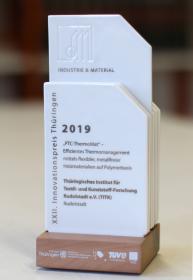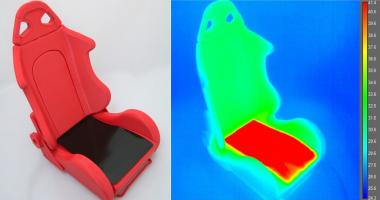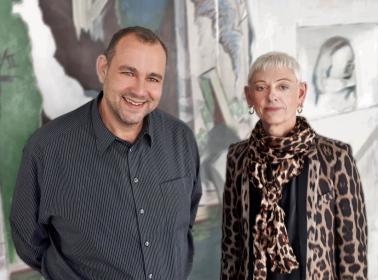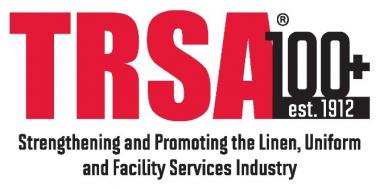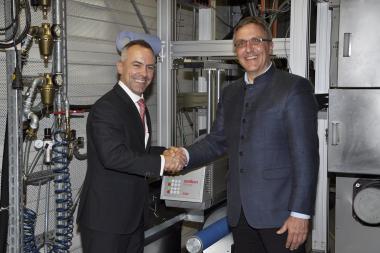VDMA: Young talents honoured online
In early December, the chairman of the Walter Reiners Foundation of the VDMA Textile Machinery Association, Peter D. Dornier presented awards to six successful young engineers. Due to the Covid-19 pandemic, the award ceremony took place as a web conference for the first time.
Philippa Böhnke, ITM Dresden, and Juan Carlos Arañó Romero, ITA Aachen, were honoured with creativity awards for the cleverest bachelor or project work. The prizes are endowed with 3,000 euros each. Ms. Böhnke’s project dealt with composite implants for the repair and regeneration of bone defects. In his bachelor thesis, Mr. Arañó Romero has developed a spinning machine able to produce yarn with material from the moon. By this, the transport effort in space travel can be minimised, because insulating material for example necessary for a moon base can be produced on the moon directly.
Harry Lucas, TU Chemnitz, and Maximilian Speiser, Reutlingen University, were awarded two promotion prizes in the category master thesis with prize money of 3,500 euros each. The master thesis of Mr. Lucas deals with the development of a new knitting head for jacquard knitted fabrics, enabling a large variety of colours e.g. in the production of fan scarfs. Mr. Speiser showed in his master thesis a solution for increasing energy efficiency in the nonwovens process.
This year, two promotion prizes of the German Textile Machinery Industry in the dissertation category were awarded to Dr. Frederik Cloppenburg, ITA Aachen, and Dr. Annett Schmieder, TU Chemnitz. In his dissertation Mr. Cloppenburg developed a model for the optimisation of roller cards in the nonwovens process. Ms. Schmieder introduced in her dissertation a damage analysis system for fibre ropes. The system detects when a rope must be replaced e.g. in transport applications.
The award ceremony 2021 shall take place with physical presence again. It is scheduled for early May at the fair Techtextil in Frankfurt.
VDMA
























